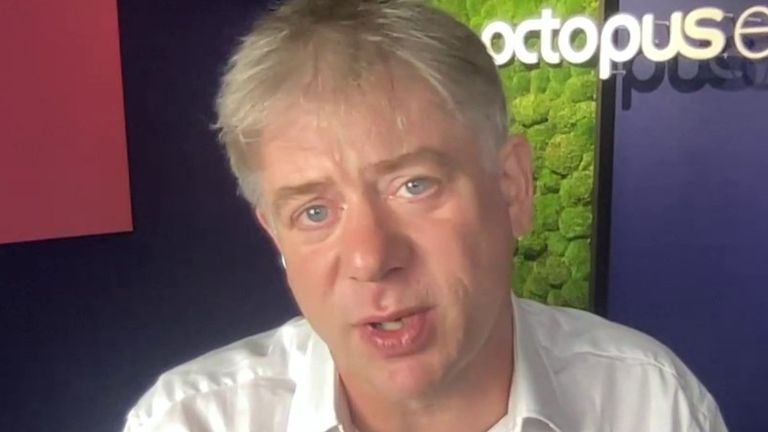As many as one-in-four UK households receive energy from providers that could face collapse as a consequence of soaring gas prices, industry sources have warned.
A 250% increase in prices has exposed providers whose wholesale supplies are not “hedged” or insured against market fluctuations, meaning they can now only fulfil supply deals with customers at a significant loss.
The increase has already triggered the collapse of two providers and left others vulnerable including Bulb, one of the larger new entrants to the market which has 1.5 million customers.
The scale of the crisis emerged after a third day of emergency talks between energy providers, regulators and business secretary Kwasi Kwarteng aimed at protecting customers of failing firms.
Customers of failed providers are automatically passed to another supplier, but the gap between real-world prices and the Ofgem price cap, estimated at at least £300 a year, means they will be doing so at a loss.
Industry insiders estimate that providing unhedged energy for every one million new customers at current market rates would cost £1bn, a total bill of up to £6bn if every unhedged firm was to fail.
The huge potential exposure has prompted Mr Kwarteng to consider granting government-backed loans to established providers to ensure they are able to take on new customers.
In talks Mr Kwarteng has stressed that the government will not bail out failing firms and that no company is “too big to fail”, but the loan proposal is an acknowledgement that the current market is dysfunctional.
Providers would still have to borrow the funds on commercial markets, but the loans would be secured against government guarantee and be paid back over a long period, with the cost shared across all energy bills.
British Gas today confirmed it is taking on 350,000 customers from the collapsed People’s Energy under the existing “Supplier of Last Resort” arrangements.
Under the scheme it said any costs it could not recover, including those incurred from buying energy, would be recovered from an industry levy.
Many hedged providers argue that the crisis is not about prices, but prudent management and believe that smaller companies who profited from not hedging when prices were falling are now reaping the consequences.
“The market is a dog’s dinner,” said Dale Vince, founder of renewable provider Ecotricity, which hedges all but 10% of its supply.
“We have seen companies selling power for less than they can buy it for and running constant losses to grow a customer base very quickly.
“Then at the same time we’ve got a regulator that says even though there are 70 competitors in the market there’s no competition so let’s have a price cap.
“There is too much interference there, but not enough with the business models and the need for hedging.
“Shouldn’t it be a requirement that energy companies buy what they’re going to sell?”
Newer entrants, however, argue they meet a demand for more straightforward bills and cheaper supply to challenge the dominance of the bigger established players.
Simon McGirr, chief executive of Green Energy, which has 250,000 customers but is unhedged, does not expect the company to survive the winter.
“With the current market conditions we are facing huge financial distress and it will be very difficult to continue trading,” he said.
“Hedging is a fine art and we have not been able to forecast the changing conditions across lockdowns and different rules in different regions.
“We have given people what they wanted, simple cheap tariffs and 95% of customers fully online, but now we are being swept under the carpet by the government.”

